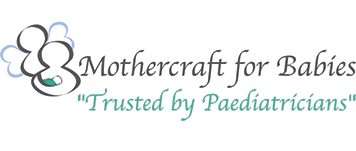This past month I have been talking to many mums who are struggling to cope with caring for their newborns. It’s a pretty intense learning curve in the first few months, particularly if it is your first baby.
During pregnancy there is lots of accessible, valuable support and advice available from health professionals and your planning will include where you will deliver your baby and your chosen birth plan. A common theme in the feedback from mums is that the birth plan can be the part of the journey that doesn’t quite go to “plan” and may result in some intervention to ensure a healthy baby and mum. If this is the case it can change your physical ability to manage a new baby when you go home. Speaking with many mums the feedback has a common theme. It can be the start of an unfamiliar feeling of loss of control and free fall in this new role and journey as a parent.
Maternity wards are not conducive to sleep. If you are breastfeeding then you will be feeding every few hours or more around the clock and this may normally take up to an hour each time as your newborn will be sleepy and you are both learning the ropes. Breastfeeding teamwork and getting to know each other takes time and practice. And you may receive different advice from the nurses with each new shift, confusing to know which advice suits you.
Time for hospital discharge and taking baby home.
This is when you and the the real world meet face to face and the intensity of caring for a new baby starts. And maybe this precious baby has been planned for some time and the enormity of her anticipated arrival can be overwhelming. It’s exciting and exhausting, a rollercoaster ride like no other. Emotional support and understanding is so important but not always readily available in today’s busy and high achieving world. Family support is not always nearby.
Dads are often expected back to work within a week. Guilt is a debilitating feeling for both parents. Dads (also sleep deprived and unsure what their parental “task” list involves) feel guilty for leaving their wife and baby at home on their own. Mum may need to touch base with dad at work for reassurance/support. Dad needs to sleep at night if possible so that he can function and be “present” at work. Understandably mum needs some respite or support with the overnight feeds and settling baby. This new routine is a lot to contend with and teamwork becomes really important so you can allow each other some respite.
It is normal for your baby to feed often day and night for the first 6-10 weeks, particularly if your baby has been born early or the birth has been complicated. And I mean every few hours…and it is normal that it can take up to an hour from beginning to end of the feed. Your newborn will be sleepy and regularly fall asleep at the breast, their most favourite place on earth. And it can be really challenging to keep them feeding through the fore and hind milk which will help them settle whilst stimulating your supply. And they need frequent and small amounts to begin with as breast milk is meant to digest easily.
And if you feel you could benefit from some “one on one’ professional guidance and help to establish breastfeeding then don’t hesitate to call on a breastfeeding specialist to help you. The “drop in” times for breastfeeding clinics at your Early Childhood Clinic can be hard to navigate with a newborn, parking and sleep deprivation!
Developmentally your baby can find a feed/sleep rhythm rather than a “routine” for the first few months. After 6-8 weeks research shows that your baby’s circadian rhythm is developed enough to enable an ability to distinguish between night and day. So you can begin to establish some daily consistent rhythm to the end of “day” bath and feed to sleep.
It is well within normal expectations that your newborn will have unsettled periods every day. And those unsettled periods will often shift to different parts of the day and night. Their only way of communicating or signalling their high level of basic needs to you is crying. And it takes time, practice and confidence to understand and read their “cues” so you may successfully respond to their needs. If your baby is crying and distressed then hold them close to soothe and calm them. Leaving babies in their cot to cry without responding serves no purpose other than unnecessarily distressing you both. Your little baby is crying for a reason, it is not behavioural. The skill and experience is identifying the cause of your baby’s distress and needs.
There may be loads of well meaning advice from the internet/mother’s forums/ friends and family that may have worked for them and their babies very well. But this may not suit you, your parenting beliefs and your newborn’s temperament.
If needs be choose one or two trusted advisers combined with your wonderful maternal instincts and enjoy your baby. When you can take a breath, take stock of your changing priorities and let some “stuff” go. Accept any food deliveries, offers of shopping or support and short home visits from vaccinated family and friends in good health!
Love, patience and emotional and physical resilience are the foundations for this wonderful and unique relationship.

